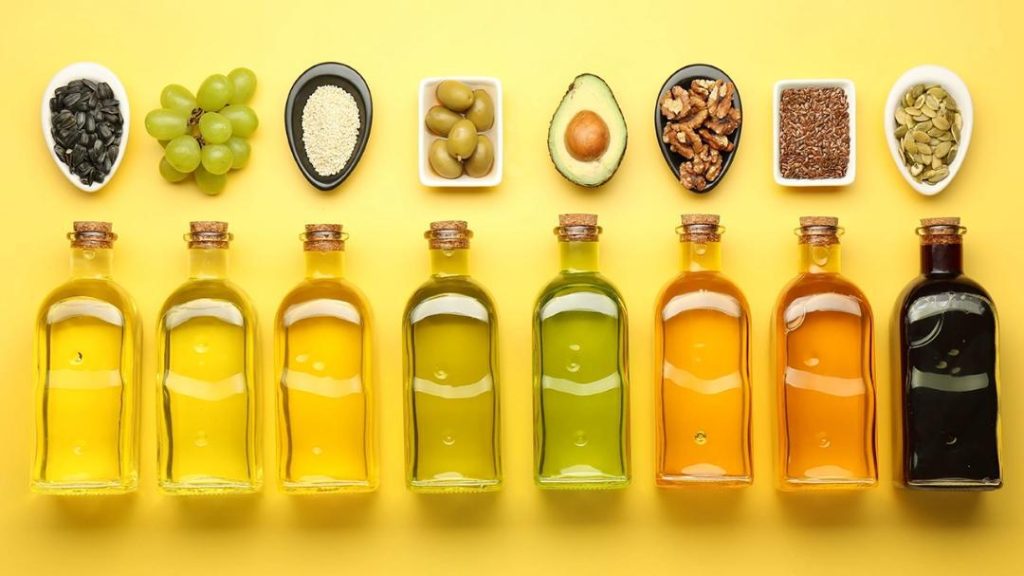
What do experts say about health hazards & benefits of seed oils?
In recent years, seed oils have gained popularity as a healthy alternative to traditional cooking oils. However, their safety and potential health risks have been a topic of much debate. Critics of seed oils, which contain unsaturated fatty acids, claim that they contain toxic byproducts of hexane, a chemical considered hazardous in gaseous form. But what do the experts say?
In an interview with Hindustan Times, Massachusetts University Food Science Professor Eric Decker debunked the myth that the hexane residue in seed oil is dangerous. Decker explained that, during the refining process, seed oils are exposed to hexane, which helps to extract the oil from the seeds. However, the hexane is fully removed before the oil is packaged and sold.
“Yes, hexane is used during the refining process, but it’s fully removed before the oil is packaged,” Decker said. “The amount of hexane left behind is negligible, and it’s not a concern for human health.”
But what about the health benefits of seed oils? Ohio University Food Science Professor Dr. Lona Sandon said that seed oils are a good source of omega-6 fatty acids, which are essential for heart health. “Seed oils don’t increase acute or chronic inflammation markers,” Dr. Sandon said. “In fact, they can help to reduce inflammation and improve overall heart health.”
So, what are seed oils, and why are they considered a healthier alternative to traditional cooking oils? Seed oils are extracted from the seeds of plants such as flax, sunflower, and canola. They are high in unsaturated fatty acids, which are known for their numerous health benefits.
Unsaturated fatty acids have been shown to lower cholesterol levels, reduce the risk of heart disease, and even help to manage type 2 diabetes. They also have anti-inflammatory properties, which can help to reduce the risk of chronic diseases such as arthritis and Alzheimer’s.
But the benefits of seed oils don’t stop there. They are also high in antioxidants, which can help to protect the body against free radicals and oxidative stress. Free radicals are unstable molecules that can cause damage to cells and contribute to chronic diseases.
In addition to their health benefits, seed oils are also considered a more sustainable and environmentally-friendly option than traditional cooking oils. They are often grown using sustainable farming practices, and they require less land, water, and pesticides than traditional crops.
So, are seed oils really a health hazard? The experts say no. While it’s true that seed oils contain unsaturated fatty acids, which can be beneficial in moderation, they are not a health hazard when consumed in moderation.
In fact, many health organizations, including the American Heart Association, recommend consuming seed oils as part of a balanced diet. They are a good source of healthy fats, and they can help to improve heart health and reduce the risk of chronic diseases.
However, it’s important to note that seed oils are not created equal. Some seed oils, such as canola oil, are highly processed and may contain genetically modified organisms (GMOs). Others, such as flax oil, are considered a more natural and sustainable option.
So, what are the best seed oils to use? Here are some of the most popular seed oils and their health benefits:
- Flax oil: High in omega-3 fatty acids, flax oil is a good source of healthy fats and antioxidants. It can help to reduce inflammation and improve heart health.
- Sunflower oil: High in vitamin E and antioxidants, sunflower oil is a good source of healthy fats and can help to protect the body against free radicals.
- Canola oil: High in omega-3 fatty acids, canola oil is a good source of healthy fats and can help to reduce the risk of heart disease.
- Safflower oil: High in omega-6 fatty acids, safflower oil is a good source of healthy fats and can help to reduce inflammation and improve heart health.
In conclusion, seed oils are not a health hazard when consumed in moderation. In fact, they are a good source of healthy fats and antioxidants, and they can help to improve heart health and reduce the risk of chronic diseases. While it’s true that some seed oils may contain hexane residue, the experts say that this is not a concern for human health.
So, go ahead and add seed oils to your diet. Just be sure to choose a high-quality, sustainable option, and consume them in moderation as part of a balanced diet.
Source:






